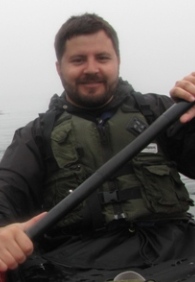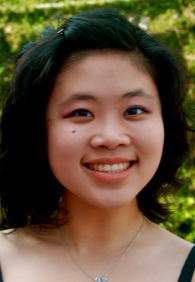
Lauren Donnelly
I obtained a Bachelor of Science degree from Dalhousie University with a double major in Biology and International Development Studies. My interest in global water management issues brought me to McGill University, where I enrolled in the Master of Science degree in Bioresource Engineering – option Integrated Water Resources Management. I am completing my internship at Environment Canada in Gatineau, QC, where I am working on shale gas development. In particular, I am looking at the environmental implications and governance issues surrounding hydraulic fracturing. The water requirements of this process are enormous (up to 4 million gallons of water are required to fracture just one well) and after fracturing this water must be disposed of. Fracturing fluids (water, sand, chemicals) are the main source of public concern, since they have the potential to contaminate groundwater and cause other deleterious effects, both to humans and the environment. I am assessing these impacts and considering the various legislative frameworks which regulate shale gas development. In the future, I would like to gain more experience working within the federal government and its various agencies, and eventually move towards more international water management issues.

Ryan Garber
I have a Bachelor of Arts degree in Anthropology from the University of Wyoming in the United States. After graduation, I started my work as an archaeologist conducting cultural resource surveys prior to oil and gas development in the western United States. After five years, I transitioned into a Field Project Manager position with a water resources consulting company building and maintaining flow monitoring systems for groundwater discharged in association with coalbed methane development After completing the fall 2009 and winter 2010 semesters in the McGill University IWRM Non-thesis program, I accepted an internship with the Lake Champlain Committee in Burlington, Vermont. My project is researching municipal responses to climate change in the Lake Champlain Basin. During this project I am investigating the vulnerabilities to climate change in the sectors of stormwater management, flood and erosion management and flood hazard response. The results of this research will provide recommendations for city managers in the Lake Champlain Basin. My professional goal is to continue working in water resources management and apply the experience I have gained through the IWRM program at McGill University. By integrating the knowledge I learned from this program, I hope to continue working with municipal adaption in regards to water resources, whether it be climate change, urban growth or another factor affecting the future water availability and protection. Lastly, I would also like to broaden my career goals to international work.

Jesse Ketler
I am a graduate, with both a technical diploma and a B.Sc. in Fisheries and Aquaculture, from Vancouver Island University. What attracted me to the Integrated Water Resource Management Program at McGill University was an interest in the improvement of our environment through Ecological Engineering (ecosystem modeling, design, management, and remediation) as well as a long-term interest in Water Resources Management (water licensing, water quality and community involvement). As a Fish Health Biologist, I monitored populations of fish for growth, population density, and disease. Part of maintaining a healthy fish population included monitoring the fish habitat through flow rates, water quality and bottom sampling. From 1999 to 2001, I was an analyst for the Harmful Algae Monitoring Program (H.A.M.P ), a program that monitored the origins of algae blooms on the Canadian Pacific Coast in order to create an early warning system for fish and shellfish farmers. As an IWRM Masters student at McGill University, I had the opportunity to study the burgeoning BC run-of-river (ROR) industry. Through me summer internship (BREE 630) I performed a detailed analysis of the licensing process, environmental assessment, and stakeholder involvement for ROR development. My experience and education in fisheries has led nicely into the IWRM Masters curriculum. With a Master of Science in Bioresource Engineering, I see myself taking consulting roles with forestry companies, aquaculture companies, independent power producers and municipal governments. Water management is a very broad field and with a diverse set of issues, this is part of what makes it so interesting and accommodating to students from varied backgrounds. I have had a very positive experience at McGill and would recommend the IWRM Master’s program to future students interested in taking on the challenges of water management.

Penelope Ma
My educational and professional background prior to coming to McGill University, was that I attended and graduated from Cornell University (Ithaca, NY) in May 2009 with a Bachelor of Arts in Biology and Society (Theme in Environment, Health and Society). During Summer 2010, as part of the IWRM program’s internship requirement, I was a student intern with Nature Connection, a conservation NGO based in Sainte-Anne-de-Bellevue. My 525 work hours consisted of both fieldwork (water quality sampling) and research on the Anse-à-l’Orme watershed. I found it rewarding to work in Anse-à-l’Orme, as the Rivière-à-l’Orme is the only inland river on the Island of Montreal, and the area has been recognized as having considerable biodiversity. In regards to my future career/professional goals, I will be pursuing a law degree at Queen’s University starting September 2010, where I plan on specializing in environmental law.
Penelope Ma - student at Queen's law school

Nicolas Rodriguez Martinez
In 2007 I received my degree in Civil Environmental Engineering and a M.Sc. in Chemical Engineering from Universidad Tecnica Federico Santa Maria, in Valparaiso, Chile. Before coming to McGill I spent 2 years working in the department of environment, occupational health and safety in ARAUCO Sawmills as the environmental coordinator of the 20 mills the company owns in Chile. I am currently completing my internship at FPInnovations as a research assistant on topics related to endocrine disruption in fishes exposed to pulp and paper mill effluents. One of the main objectives of the internship is to identify potential chemical markers in the main process streams of a pulp mill that can be associated with effects observed in fish. In my project report I will address this problem considering IWRM concepts, such as Adaptive Management and Total Maximum Daily Load. My plan is to go back to my home country (Chile) and apply all what I have learned so far doing research or working in a private company.

Sarah Lee
Originally from the woods of eastern Ontario, I attended Cornell University for my bachelor's degree and graduated summa cum laude with a major in Sociology and minors in International Relations and in Social Inequality. Prior to earning my master's in Integrated Water Resource Management at McGill University, I worked for three years as an agriculture and forestry Peace Corps volunteer in The Gambia and Senegal. My professional experience involved coordinating a national tree growing competition by collaborating with several Gambian government agencies. I lived in a small Wolof village where I worked as a farmer extension agent. Seeing the vulnerability of their farming systems to variations in rainfall motivated me to study water resource management in graduate school. As part of the last cohort of IWRM students in the 2 year program, I took 15 graduate level classes in both the science and policy sides of water resource management. My summer research project was funded through the generosity of the Zavalkoff McGill-Israel Travel Award and gave me the opportunity to learn how Israel is addressing water scarcity. I conducted research on Israel's water strategy in collaboration with Dr Yaakov Garb at the Jacob Blaustein Institute for Desert Research in Sde Boker. Our research, based on interviews with key officials in Israel, focused on the broad systematic, environmental, and economic implications of increasing reliance on desalination and was framed within water soft path theory. Having completed my MS in IWRM in 2010, I plan to work in the field of water productivity, specially rural water supply and irrigation in developing countries.
Sarah Lee - working in rural water supply and irrigation in India